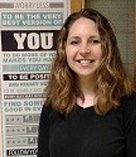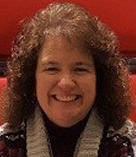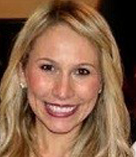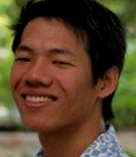Congratulations to the 2017 CS Teaching Excellence Award Winners! (Part 1)
June 23, 2017
Together with Association for Computing Machinery and Computer Science Teachers Association, the Foundation is recognizing 10 winners of the Teaching Excellence in Computer Science Awards at the upcoming CSTA conference in July in Baltimore, MD.
Each will receive a $10,000 award to recognize outstanding CS teaching skills. Meet the first five award winners.

Eric Allatta
Academy for Software Engineering, New York, NY
"The single most important concept for students of computer science is the difference between a specific value and the general case for all values of a given type. I double down on the relationship between computer science and mathematics and hold my students accountable for learning these skills."

Jacqueline Corricelli
Conard High School, West Hartford, CT
"To teach a computer is to think about thinking. It is beautiful."

Karen Donathan
George Washington High School, Charleston, WV
"A plan that does not work is not a sign of failure, it is a means to perseverance. Students should never give up!"
"Once the importance of algorithms is truly understood, students become natural planners. I have had many students tell me that they use algorithms in their other courses or in their out-of-school jobs. When I see them make these connections, I know they are true computational thinkers and that they truly get it!"

Farrah Falco
STEM Magnet Academy, Chicago, IL
"When a student runs a line of code and it fails, it doesn't mean that they failed. It means they found a way that didn't work. That is not failure. That is called learning. This is important because when the fear of failure is removed from the equation, amazing things happen: dreams are realized, discoveries are made, and lives are changed forever."

William Lau
Greenwich Free School, London, England
"Computer Scientists, like all scientists, work experimentally and iteratively on a problem. I teach my students that unlike any other subject, in CS they will spend a lot of time making mistakes, feeling like they are getting things wrong and debugging. Indeed, learning from our mistakes is the only way to learn programming…once students realize that deconstructing a problem is much more beneficial in the long term and makes for better programming practice, they get into the habit of thinking computationally."

